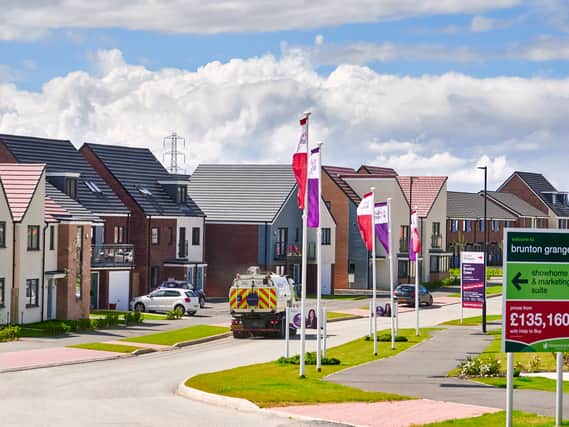How households in Newcastle may be in for a 5% council tax increase


Households in Newcastle could see their council tax rise by up to 5% in order to keep up with current government spending plans, according to a financial think tank.
The Institute of Fiscal Research has issued the forecast, which outlines that a rise in council tax of at least 3.6% would be needed to keep up with spending.
Advertisement
Hide AdAdvertisement
Hide AdHowever, due to extra costs, this could increase to a rise of 5% a year through to 2024/25. This equates to the average household bill in England rising by £160.
The think tank stated that the rise in council tax will take place due to increased spending as a result of the coronavirus pandemic.
Kate Ogden, a research economist at IFS and an author of the chapter, said: “The Government has stepped up with billions in additional funding for councils to support them through the last 18 months, it is likely to have to find billions more for councils over the next couple of years if they are to avoid cutting back on services, even if they increase council tax by 4% a year or more.
“The coming financial year is likely to be especially tough, with the likelihood of at least some ongoing Covid-19-related pressures, and a particularly tight overall spending envelope pencilled in.
Advertisement
Hide AdAdvertisement
Hide AdThe chapter also finds that the UK government will very likely have to increase the amount of money given for planned reforms to adult social care services in England.
The government has said it will provide £5.4 billion over three years to begin the roll-out of a new lifetime cap on care costs and more generous means-testing arrangements, as well as higher payments for care providers, increased support for informal carers, investment in housing adaptations and supported housing, and workforce development.
Given the scale of what the government wants to achieve, this funding is unlikely to be sufficient to meet the government’s stated aims in full over the next three years.
In the longer term, the annual cost of meeting the government’s ambitions for social care is likely to be around £5 billion a year, almost three times the average annual funding planned over the next three years. Funding for higher pay for care workers, or to enable councils to relax care needs assessments alongside changes to financial means-testing, could require billions more on top of this.
Advertisement
Hide AdAdvertisement
Hide AdMark Franks, Director of Welfare at the Nuffield Foundation, said: “Despite the government’s recently announced social care plan, even significant council tax increases risk not being sufficient to meet the future demand for local service provision or address staffing issues in the adult social care sector.
“Currently, many existing adult social care workers only receive minimum wage and zero-hours contracts are common, which has contributed to staff shortages in the sector.
“Until sustainable funding is in place to address these issues, disabled and older people are at risk of being unable to access the care they need.”
Comment Guidelines
National World encourages reader discussion on our stories. User feedback, insights and back-and-forth exchanges add a rich layer of context to reporting. Please review our Community Guidelines before commenting.